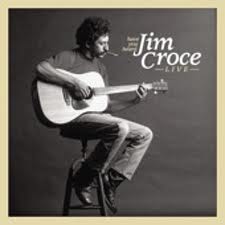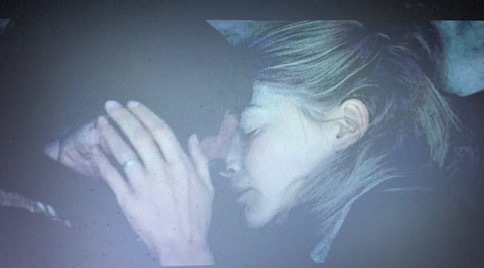|
home | what's new | other sites | contact | about |
||||||||||||||||||||||||||||||||||||||||||||||||||
|
Word Gems self-knowledge, authentic living, full humanity, continual awakening
What Men Really Want
Movies, songs, and literature offer a seemingly endless parade of commentary on “what men want.” And it’s all true, as Mister Testosterone is hard-wired for species-propagation impulse. You heard it first here. But the animal side of the male, once "eyes are opened," will constitute but minority interest within an array of commanding authentic desires. There's more to him after all, no matter what Mom taught you about men. Allow me to put this differently: Women might offer the question, “Does he really love me? How will I know?” ...
Whitney’s right – “love can be deceiving.” Dr. Mortimer Adler, too: "Love is all opposites - the only reality, [but also] the great illusion; the giver of life and its consumer; the benign goddess whose benefactions men beseech, and [the one] who wreaks havoc and devastation.”
it’s better to be approximately right than precisely wrong
But concerning a general answer to Whitney's question "How will I know?" the quick answer is, if he’s still operating solely as Bio-Man, led by the “false self,” he’s not yet even capable of genuinely loving you - even if, by chance, he is your eternal soulmate; as we say, his warp-drive won’t even be installed until Tuesday. But, hold on, if his deeper, truest self has begun to stir, if eyes have begun to open to ultimate reality, to pluck a phrase from an old Jim Croce song, “then, mother, you’re gonna see” some things you didn’t know about what men really want.
And if this great metamorphosis has occurred to a fellow you once knew, or thought you knew, and if you haven't seen him in a long time, then, be prepared to meet someone new. Let's count the ways: He wants to talk to you, and only you. Women don’t really understand this principle, at least, not in the beginning, but they soon find out when their Bio-Man doesn't want to talk. However, my claim here can’t possibly be true, you argue, not as a general rule; why, certain loquacious men, rare as they are, come to mind this moment – witty, affable, gracious, quite easy to talk to. But, don’t you know, these are Yeats’ “smiling public men,” canvassing for support. Let us recall the dictum, “all egos want something from you.” Yes, the gracious man, as duty calls, knows how to charmingly turn a phrase in the presence of the fairer sex; but, in this stagecraft, with thespian mask, there is no authentic communication. Much more is required for him to make himself vulnerable. The “smiling public man,” behind the photogenic smile, laments his condition, the hidden prison of his soul's aloneness. As such, he not only desires, but craves, for the liberation of speaking to one woman who will understand. One particular woman. The woman he truly loves. Only to her will he lay bare the long-fortified citadel of the heart. How he yearns for this access to you - far more than the imagined “what men want.” As songwriter John Sebastian expressed it, "the great relief of having you to talk to." If required to choose, he would rather explore your mind than your body; not that he intends to give up the latter. But, he knows, and feels deeply, what he really wants. He realizes, if only subliminally, that he cannot move forward in his existence – without you, without a "union of spirits" with you. And this is why he is compelled to discuss, with you, his deepest aspirations and ideas, his plans for better days, his hopes of a perfected tomorrow. Mentally, he stands at the precipice of a black chasm of despair, the horrific threat of unremitting existential crisis, if you, somehow, were not to be part of his future. He knows that this would destroy him. You are not simply an alluring pretty face but part of his own person. He’ll probably consider you “most beautiful”; but such superlative is not why he can't live without you. More than decorative appeal, you are to him – as he senses the hard reality – an aspect, a half, of his very being; to him, you have been revealed as "soulmate, myself." Only you can rise to this level of mystical integrated-familiarity, with all other members of your species, pleasant as they may be, relegated to fungible product. You are sacred "Woman" to him with all the rest as mere "female." He will not fight for you, but this doesn’t mean that he will cut you loose. We talked about this. In the fur-and-feather arena of “Animal Planet,” many of the fuzzies, jousting for a mate, will puff their chests out, make some screech bird-calls, do a rain dance, wave the coat-of-many-colors, and if you’re the last tuft-of-fur standing, you might enjoy the five seconds of pleasure, the fleeting privilege, of perpetuating the species. Nice work if you can get it. The enlightened true-mate, however, is hunting for bigger game. But let’s be clear. When we say that “he will not fight for you,” do not misunderstand. If he thought that it would help, he would march into fiery hell for you and lead the commando squad and take no prisoners. But, as we’ve said, there is no point in corralling the beautiful body if the mind wishes to be elsewhere and is not ready to reciprocate. But why should he not cut her loose if she wants to go? Are there not untold millions of “fish in the sea”? Why bother with the recalcitrant one who is not ready to transact the business of life when there are so many pretty faces out there? Well, such dispassionate philosophy is the spirit in which most deals are done every day on “Animal Planet,” but none of this disposable, throw-away love means for anything to the enlightened true-mate. His eyes are now open – the inner eyes of the soul – and he has been granted a sampling, a mystical revelation, of the life within; and because he has come to know these inner riches, his true self, he will also be able to recognize, and resonate with, his true mate, his lost “better half,” when her energy-field crosses his mental radar screen. Once he knows who she is – and this discovery may be a shock to him and not his “choice” – and if she is not ready to be with him, then he will lay plans and bide his time. He will not give her up. Yes, in fact, he will fight for her, but not by “puffing his chest out.” His strategies emulate, far more, those of Lao-Tzu and the ancient warriors of the East, "yielding to overcome." He will never give her up. Never. How can he? There is only one woman created for him. There is no other “fish in the sea” for him. Period. He has no true feelings for another pretty face. He has no other options. You are his “intimate enemy.” Only with you will he argue, only with you will he engage in lovers' "sacred" combat. Even if lovers are eternally destined, because each matures on an individualized schedule, inevitably, for a while, they will be out of phase with each other. Each will come to realize what needs to be realized, but at different times; the lights will go on, but not in unison. And during these times of “ships passing in the night,” one will likely be angry with the other. The one with “eyes in the head” will do well not to provoke or demand too much too soon. We say that “only with you will he argue.” It takes energy to argue, and he will not argue, not on a sustained basis, with a woman he does not love. It won’t be worth it to him; couples who see no reason to thoughtfully argue are the living dead, it's over for them, all but the funeral homily. And why should he argue, or disagree, or not give in? He must stand fast if he knows she’s in the wrong; and being “in the wrong” means that decisions have been made that will lead to suffering. If he presently sees more than she, then he must stand fast in his principled view. Pandering, for short term gain, would just prolong their misery and delay their eventual union. True lovers engage in a kind of “sacred combat” in which they will absolutely not allow the other to destroy him or herself. Not without a big fight. It would be very easy, and so pleasant, to just walk away and find another “pretty fish in the sea” to sleep with, but, once eyes have opened, this is no longer a possibility; even Jesus talked about this. Yes, your eternal true friend and guide will not be impressed with your bad ideas and your bad decisions, your culturally-conditioned fear and guilt...
... and so, as they say, he will turn you every which way but loose. In his natural, enlightened state, he's like Jack Ryan, with an open "boy scout grin." But, during this out-of-phase time of one mate flirting with self-destruction, he has no sense of humor. And he will keep coming at you, and keep coming at you, until it's over. Failure, for him, is not an option. If he really loves you, he will change his life. He will do things, for you, that he said he’d never do, even to help himself. There is a bastard version of this principle that we see all the time in unenlightened society. One of the lovers is religious, the other is not, or is of a different faith. But then one “converts” to the other’s belief-system in order to close the deal of the domestic business contract. This is usually a very bad idea, for many reasons. However, suffice to say, if one really believes, in good conscience, in a certain list of "holy, infallible" doctrines, even if it's all crackers, then you will pervert yourself to jettison it all for a “happy married life.” This "good life" will be pure illusion. If you enter a marriage having compromised core principles, you will be miserable, guilt-ridden, wallowing in self-loathing. Guaranteed. (The same will be true for those who remain in a bad marriage despite the inner “still small voice” telling you to get the hell out.) This much is almost common sense. If you violate your conscience – even if, for the time, the conscience is miss-educated -- no good can come from it. One must be true to one's truest perception of truth. Therefore, the true mate will never force his lover to accept more than she’s ready for. Ok then, all this acknowledged, let’s talk about an aspect of this that’s right and proper. I’m reminded of a scene in “A Walk To Remember,” the love story of Jamie and Landon.
There’s something Landon doesn’t want to do. It might even be a good thing, but he’d never be bothered to do it for himself. But then she smiles sweetly and coos: “Please? For me?” No match for her in the heat of combat, he is now overturned by her onslaught, sighs palpably, and abruptly withers. And so what do you say when the girl you die for asks for something that’s in your power to give? This is how it works, and it’s why the great Spirit Guides inform us that the deepest purpose of sacred love and marriage is to provide impetus to spiritual growth and development. There are certain high levels of achievement that we might never get around to working for unless a smiling lover besets us with, “For me?” If a man truly loves a woman, he will change himself -- a "causal efficacy," as evolutionists use the term -- in order to be better for her. He wants to please her in all things, he wants to be more for her, and he will arrange his life – that which is discretionary and not of core principle -- to please her. It’s as if he has no choice in the matter. His entire being, the higher self, is programmed to be as close to her as possible, and he will change himself to make it so. Editor’s note: She must not take advantage of his “weakness.” He may be tempted to give too much, things which he may need for his own peace of mind. She must not allow him to bankrupt himself in the pleasing. In the mature romance, without gamesmanship, they must discuss what they, together, need and desire for their joint lives of love and well-being. Summary principle: If he truly loves you, he will tirelessly work toward, plan for, creatively generate, all that you need and desire for a happy life. It’s a signed blank check, just for you. In “The Wedding Song” we learned that egoic lovers use each other as stepping-stone “means to an end.” Each hunts for a mate who will “make me happy,” with little regard for the other’s needs. While this self-centeredness becomes prelude to much sorrow, this does not mean that, in a healthy love relationship, there is no place for “make me happy.” Street wisdom speaks of the “50-50” marriage, as if to say, “we should not give of ourselves beyond a certain point,” that is, "more than we receive." But this spirit of miserly calculation, of “knowing the price of everything but the value of nothing,” has never produced the “extreme delight” of oneness promised in the self-sacrificial, holy, eternal marriage. John and Mary are taught, even by clergy and counselors, that success in marriage comes via "the art of compromise" - as if marriage were some kind of union contract to be hard-bargained for; in other words, it's "giving to get," but no more than necessary. And in this buffoonery-philosophy of marriage, young couples soon enter the ranks of what Ann Landers called "the miserably married." The reality is, a man truly in love will do anything for you, anything, and do anything just to be with you; if he has to, he will wait the proverbial "thousand summers" to see you, to touch you, to hear the melody of your voice; and, once he’s with you, he will work, joyously, to make you happy. This grand principle, for both mates, of giving of oneself “100%” in shared blissful harmony, generally speaking, will not happen in this world but awaits us in Summerland as the sacred Twin Soul union. All this is what men really want. Eternity, without true happiness, without true love, without you as Darling Companion, becomes, in the end, for him and for you, avenue to insanity. See my article "Will You Survive The Terror Of Eternal Life?"
reprinted from the 'I need some space' writing: K. But what if he really does desire to be with a girl like Jamie Sullivan? you got to my soul...
E. He wants her virtue, it’s a treasure to him. It’s the beauty of God shining through her made-in-the-image agency, and, whether he's yet figured this out or not (probably not), he craves this interaction with the divine. Her radiance, her purity of spirit, her unpretentiousness, in all his eternal life, is the closest he will ever come to a face-to-face meeting with God; and he suddenly realizes that he cannot bear to live without her - if required, he'd be willing to make a fool of himself, and endure a lot more, to have her. Moreover, subliminally (he'll get to this realization), he also wants their future family, and even coming generations, to be inspired by his truly good girl. She has totally ruined and ended his devil-may-care days. He's now like the guy in the Neil Diamond song: you got control, you got to me, you got to be mine... used to slip through every girl's hands like water, never was one who could ever tie me down, straight ahead and steady as Gibraltar, 'til you brought me tumblin' to the ground, you got to me, brought me to my knees, never thought I'd say please, girl, you got me, you got to my soul... K. "You got to my soul" means that she has now embodied all of his higher-level aspirations. This has far more long-term drawing power for a guy than a girl's naked body. E. And here's another one "brought to his knees" in a song ["She's So Respectable" by The Outsiders, 1966]. K. There seems to be a lot of that going around, but only with certain girls. It’s very strange, Elenchus. The male on his knees before the girl he “worships and adores” is not uncommon in songs, movies, and literature. But when the knee is bent, it’s always in service to higher-level aspiration. No one, in the history of the world, has ever heard of a male offering heartfelt obeisance of the knee merely for a girl’s naked body, but primarily for her soul; and, to satisfy his own soul. Is this not utterly amazing?
what is it about love that we find so compelling
sacred alliance: heart versus soul connection
What the enlightened man wants from his true mate is nothing from her, or about her, or via her agency; no, none of that, not really… it's you, it's only you
What Is The Reason (1966) What is the reason for falling in love, is it a place to go when you're feeling low, is it the thing to do when you're feeling blue... no, it's you, it's only you... tell me, what is the reason for falling in love, is it because, they say, things should be that way, is it the magic key that opens ecstasy... no, it's you, it's only you...
We -- especially disillusioned women, I think -- hasten to comment that, in the long sordid history of the world, this kind of purest love has never been experienced. But now we’re back to the thesis of “The Wedding Song” and its unyielding insistence for “something never seen before.” Read all about it here.
demarcating a comicbook-reality epoch
touching foreheads and the 'soft voice coming at night'
the movie Hostiles (2017), Rosamund Pike and Christian Bale
reprinted from the K & E dialogues: touching foreheads and the 'soft voice coming at night' In my old age, do you want to know what I really want? A young man might want, thinks he wants, a lot of sex, a lot of bodily contact. And it’s not that I'm averse to this, but it’s not nearly as important to me as something else. Elsewhere, I've referred to “touching foreheads,” which symbolizes a “union of spirits.” In that writing, there are several photos from a movie featuring a Captain Blocker and Rosalee Quaid who, I think, perfectly represent this ideal. It represents a sacred meeting of the minds, a different kind of eroticism, a profound intimacy, of very high grade. This is what I really want. It is the true antidote to aloneness. Two spirits as one.
the movie Hostiles (2017), Rosamund Pike and Christian Bale I have trouble imagining you in this dazzling-darkness way. Your outward beauty is more than stellar, but physical appearance alone can be an empty thing and has never kept a couple in thrall for very long. I have trouble imagining you as tenderly wanting me, that soft voice which comes at night.
Jane Fonda, Robert Redford (2017)
|
||||||||||||||||||||||||||||||||||||||||||||||||||
|
|
